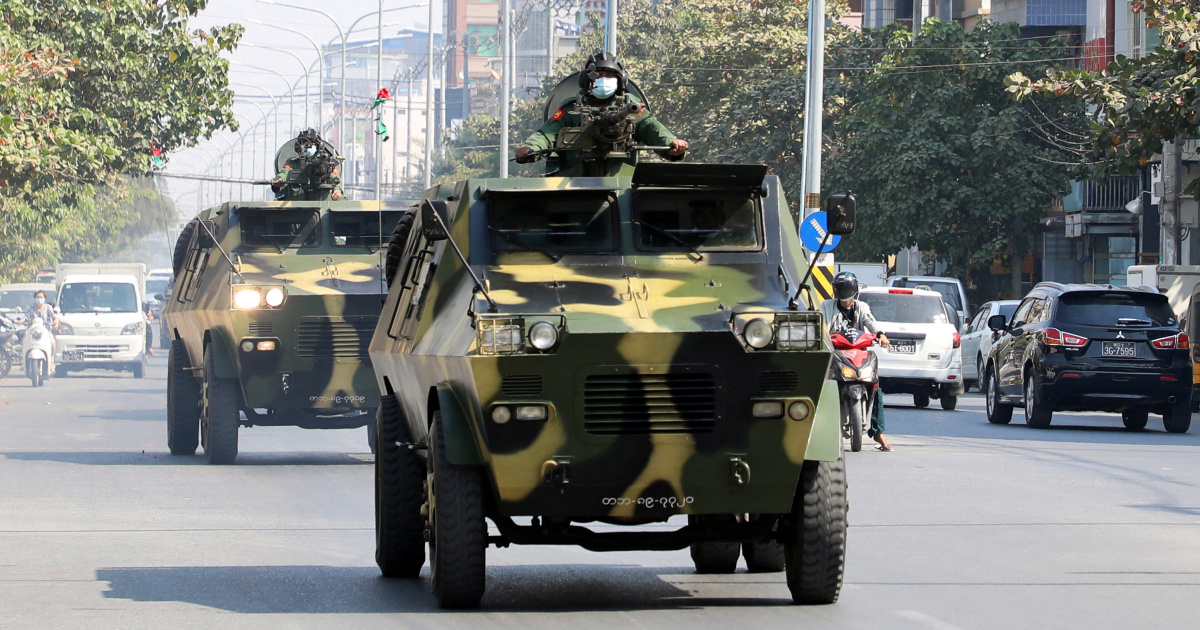The Military High Command on Saturday disclosed plots to instigate members of Armed Forces of Nigeria to topple democratic government in the country.
But the Director, Defence Information, Tukur Gusau, a Brigadier-General, described the development as “unpatriotic and wicked,” maintaining that the military was happy and better under democracy and would not get involved in any act to sabotage the hard-earned civil rule in Nigeria.
Gusau’s reaction came on the heels of calls by some Nigerians that the military should step into the country’s leadership position owing to the perceived failure of democratic governments.
“The reports calling on the military to interfere in our democracy is highly unpatriotic, wicked, and an attempt to distract the Armed Forces of Nigeria from performing its constitutional responsibilities,” Gusau had said.
Coup: ActionAid opposes troops deployment to Niger
Those instigating us to topple Tinubu’s govt will fail – Military
He also dismissed insinuations in some quarters that the troops of the Nigerian military were not well taken care of, noting that it would not allow any individual or group of individuals to instigate military officers against the present government
The call for coup in Nigeria and the military reaction stemmed from a recent military takeover in neigbouring Niger Republic said to have been effected to avoid “the gradual and inevitable demise” of the West African country caused by “rising insecurity and a lack of economic growth.”
From August 2020 to date, about six West African countries: Mali, Chad, Guinea, Sudan, Burkina Faso, and Niger, have been toppled by the military.
Notably, many Nigeriens have shown support for the military rule. And invariably, some Nigerians also think their nation will be better of under a military regime instead of democracy, which they feel has been bastardised by many politicians.
Even though democracy in Nigeria has its shortcomings, it is widely asserted that the “worst democratic government is better than the best military rule.”
A Mass Communication scholar at the Nasarawa State University, Prof. Anthony Igyuve, re-emphasised this view at a recent public lecture in Kaduna organised by Peace For Free Initiative.
“Our democracy and elections are evolving and that is why we need to be a credible part of that process, so that at the end of the day, we can be proud that we have contributed to democracy’s sustainability because the worst democracy is better than the best military rule,” he said.
To this end, Daily Trust highlights five negative impacts a coup will have on Nigeria and the citizenry.
ABSENCE OF DEMOCRACY
A military coup otherwise known as a coup d’etat is an illegal and overt attempt to depose a democratically-elected leader.
During this period, the military as head of government wields overwhelming power. The military regime is charaterised by dictatorship.
With military rule, all forms of democratic institutions such as the constitution would be suspended. The power solely rests in the hands of the military without the presence of the judiciary and other arms of government.
This contempt for the constitution nullifies the rule of law, which in turn encourages disorder and chaos.
The operations of government institutions such as the courts, the civil service and labour unions will be gagged and rendered difficult to function.
DICTATORSHIP
The military being in power exerts total control on the country, and governance is through dictatorship. There is absence of the National Assembly, so people’s opinion is not taken into cognizance.
Due to its autocratic nature, military rulers are barely insensitive to the plight and demands of the people. Authorities are given and must be adhered to eventually through the use of violence against the people.
HUMAN RIGHTS VIOLATION
The implication of an absence of democracy during a military rule is the adverse violation of the citizens basic and fundamental human rights.
Human rights such as freedom of speech, expression and association will be heavily abused. Citizens have no power to challenge draconian laws and if they do, they risk detention, torture, or in extreme cases extrajudicial killing.
SUPPRESSION OF PRESS FREEDOM
Under the military control, press freedom is typically viewed as a threat, and every effort is made – often ruthlessly – to stifle the media and civic space. Any serious attempts by the media to question the government’s inadequacies on critical matters would suppressed. For criticising a military regime, journalists are often abducted, detained and maimed.
SEVERANCE OF TIES WITH NIGERIA
Nigeria runs risk of severing its ties with several foreign countries and international organisations as the United States, United Kingdom, United Nations (UN), among others, if it dissents to military rule. Many international donors that support Nigeria in various key sectors may also withdraw their support.
WIDESPREAD FEAR, ANXIETY
Due to the militarization of country during a coup, the people tendto live in constant fear and anxiety.
Speaking to Daily Trust, a political scientist at the University of Ilorin, Professor Emmanuel Ojo, said that soldiers who gain power through a coup do not follow the rules and constitution.
He further stated that Nigerians should instead use their votes during election periods to install credible leaders instead of supporting a military rule.
He said, “The major disadvantage of a military intervention is that soldiers do not abide by the constitution and they do not have tenures. When soldiers take over a government, they would be there until another faction of the military stages another coup to kill or overthrow them.
“Military intervention brings more coups because there is no provision of a date for them to handover to another government.
“Nigerians should believe in the ballot box and go out to vote. In the last election, there was apathy. Less than 40 per cent of registered voters actually voted and that means that we do not have the right to complain but to endure the pain. In developed countries of the world, people go out to vote because they do not want a poor government or policy.
“We have registered voters that are politically uneducated to the point that they refuse to vote and so they do not have any reason to complain about bad governance.”

 Join Daily Trust WhatsApp Community For Quick Access To News and Happenings Around You.
Join Daily Trust WhatsApp Community For Quick Access To News and Happenings Around You.


